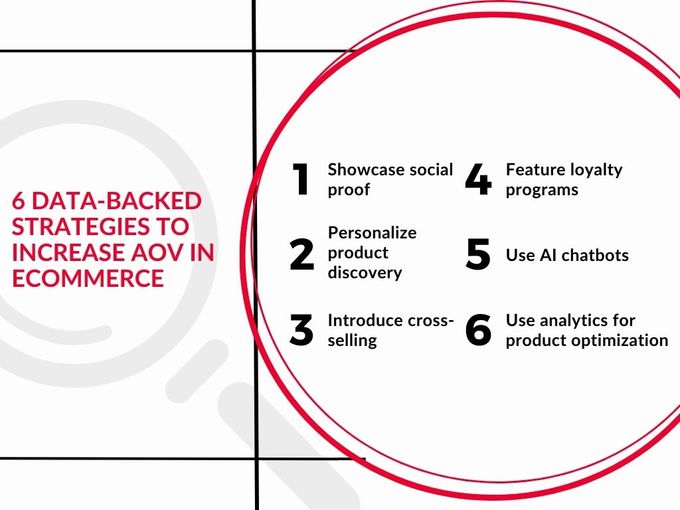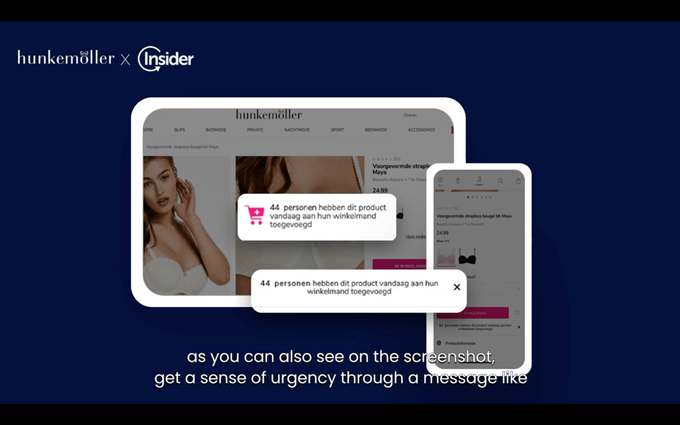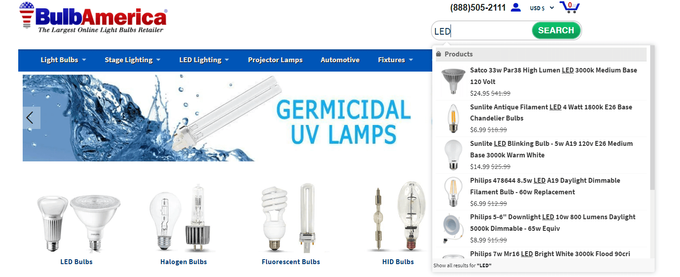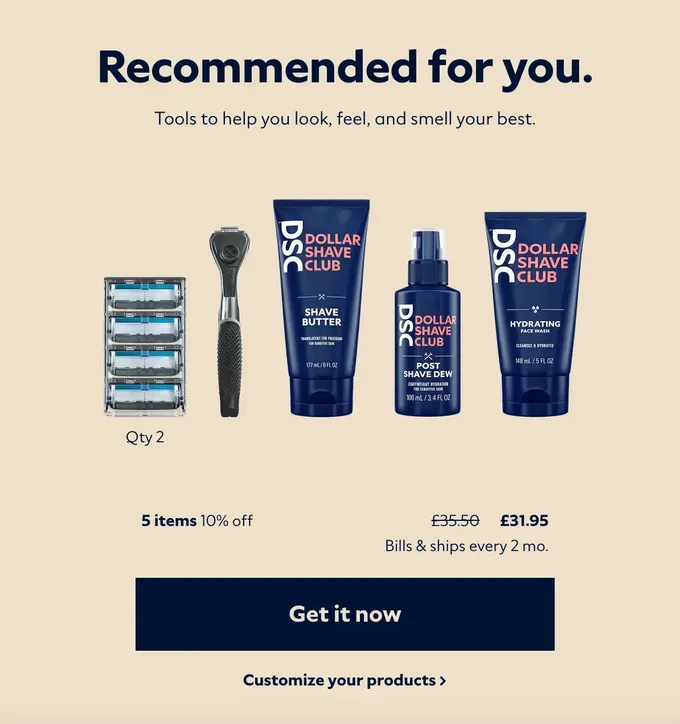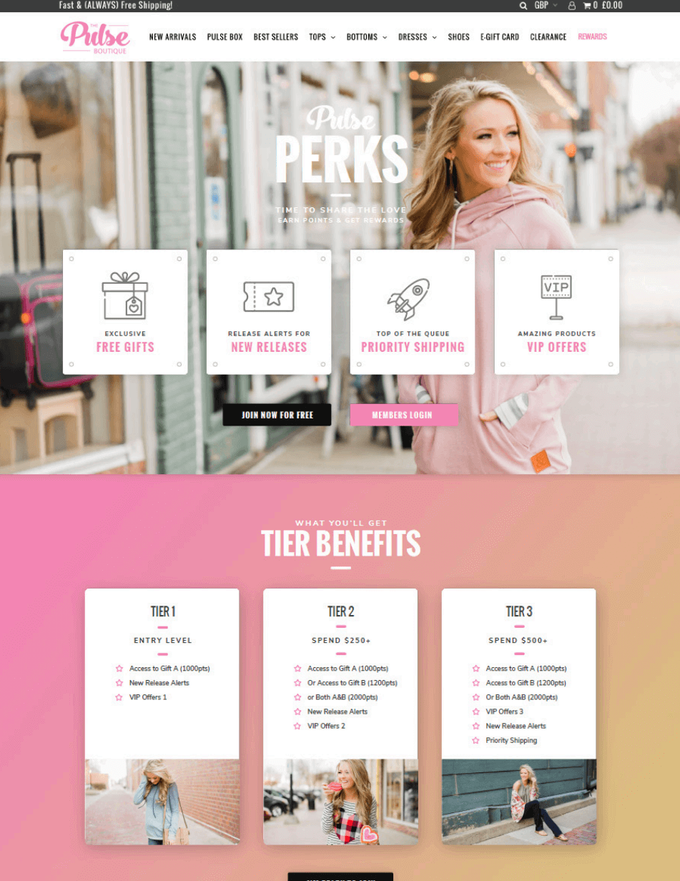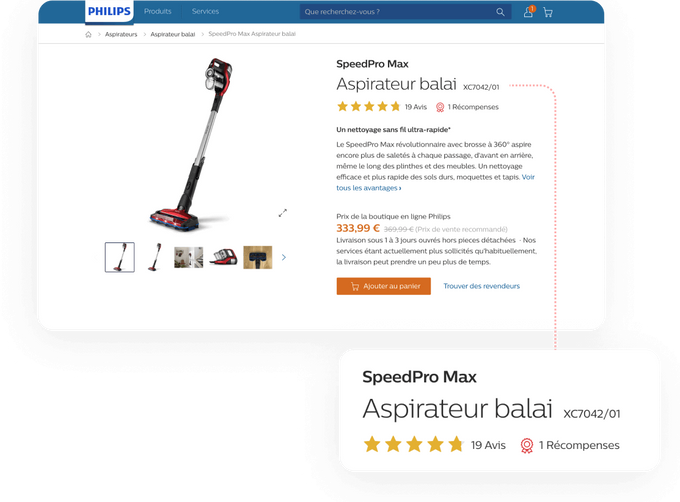6 Data-Backed Strategies to Increase AOV in eCommerce
A data-driven, iterative approach allows you to optimize your eCommerce offerings based on evolving customer needs and market trends.
Published October 14, 2024

AI Summary
Reaching success in the dynamic landscape of eCommerce means not just driving traffic to your online store but also maximizing the value of each customer transaction. One way to do this is by increasing the average amount of money that customers spend at your store, your average order value (AOV). Here are 6 ways you can do just that.
1. Showcase Social Proof
Nobody likes being the first to try something new—we look to others to validate our choices. Smart eCommerce brands capitalize on this innate desire for social proof by providing external validation shoppers crave to highlight feedback, reviews, and testimonials.
When people see how many others love your products, they feel more confident purchasing them and are more likely to splurge on premium items or add complementary goods to their cart.
Hunkemöller's Results Speak for Themselves
The lingerie brand Hunkemöller exemplifies the power of social proof. They displayed real-time purchase data on their product pages, tapping into the psychological appeal of conformity. The results were remarkable: a 20% increase in desktop orders and a 13% increase on mobile within just a month of implementation.
While showcasing social proof can be highly impactful, you may face hurdles like a lack of customer reviews or difficulty in selecting the most persuasive testimonials. Overcome these challenges by incentivizing reviews with enticing discounts on future purchases. Also, leverage smart software solutions to analyze and surface the most compelling positive feedback automatically.
» Learn the importance of using reviews in your eCommerce strategy
2. Personalize Product Discovery
Having too many choices can backfire and deter sales, which is why personalization is such an impactful part of the shopping experience. Using data on purchase intent and past behavior can help you tailor product recommendations and site search results to each customer's preferences.
Imagine a shopper's delight when your site seems to read their mind and provide the exact items they were thinking of. It's like having a personal shopping assistant who knows you inside and out. With relevant discoveries at their fingertips, customers are naturally inclined to keep browsing and adding more items to their carts.
Fast Simon Powered Bulb America's Bright Idea
To improve your customers' experiences, you should limit search results to avoid overwhelming them. The Fast Simon Search Solution can help solve this challenge by:
- Predicting what your shoppers are looking for before they begin typing.
- Using machine learning to ensure all queries go answered, including those with synonyms and misspellings.
- Enabling you to customize your search page and product display based on your merchandising rules.
3. Introduce Cross-Selling
When customers are already in a buying mindset for one product, it's the perfect time to cross-sell. Inspiring additional purchases through related products, bundles, and complementary items comes into play.
The key to effective cross-selling is using data to pinpoint which products customers frequently buy together or which add-ons enhance the primary purchase. With those insights, you can prominently showcase the companion pieces shoppers most likely want. It's a win-win—customers get a more delightful, convenient experience while you raise your AOV.
Dollar Shave Club's Personalized Cross-Selling
Attracting customers' attention towards cross-selling items can often be a difficult task. Therefore, creating a website that emphasizes these recommendations and makes them easy to find is imperative. By analyzing your sales data, you can identify items frequently purchased together, which can help you determine cross-selling pairings.
» Provide the best shopping experience with data-driven upselling and cross-selling product recommendations
4. Feature Loyalty Programs
Who doesn't love being rewarded for their spending?
Implementing a loyalty or rewards program motivates customers to grow their order values to reach new membership tiers. The more they spend, the more exclusive perks they unlock.
These programs also foster long-term customer loyalty and repeat business. By making shoppers feel valued and appreciated for spending, you deepen the relationship for lifetime customer loyalty and profitability. Just be sure your rewards are enticing enough to inspire incrementally larger orders.
Pulse Boutique Racked Up Bigger Orders
Customers sometimes forget to use their loyalty points. Therefore, send personalized messages to remind them of their balance and redemption options. The loyalty system should be user-friendly with clear instructions to help customers easily track and redeem their points.
5. Use AI Chatbots
Improving the customer experience with AI chatbots can be a powerful tool for small- and medium-sized eCommerce businesses. To provide personalized shopping guidance, these virtual assistants leverage customer data like:
- Past purchases
- Browsing behavior
- Prior interactions
- Demographics (age, location, etc.)
In addition, chatbots leverage AI-based personalization to encourage customers to spend more per transaction by:
- Making tailored product recommendations
- Answering questions
- Curating bespoke orders
The secret to chatbot success is tightly integrating them with your eCommerce platform and CRM for automatic data syncing. As the AI ingests those customer insights, it learns each person's preferences to steer them toward bigger carts tailored just for them.
Keeping recommendations on point means regularly updating the chatbot's knowledge to match shifting customer interests and trends. Just leverage integration tools or APIs to ensure seamless connectivity between the chatbot and your other business systems. Options like Maisie AI simplify deploying and maintaining AI assistants delivering relevant, AOV-boosting product guidance.
6. Use Analytics for Product Optimization
Businesses gain invaluable insights into what resonates most with buyers by analyzing data streams like:
- Purchases
- Site navigation patterns
- Survey feedback
- Pain points or complaints
You can use these insights to create finely tuned shopping journeys that inspire customers to spend more per transaction. To do this effectively, you need to consider optimizing the following features of your store:
- Products
- Messaging
- Bundles
- Promotions
As customer needs evolve, this agile strategy allows you to adapt swiftly.
Philips Boosts AOV Through Smart Optimizations
Investing in advanced analytics tools like Mixpanel or Fast Simon's Smart Collections can help businesses track how customers interact with their offerings and gain insights to boost their AOV by providing better product recommendations that are relevant to each customer. To further interpret data, companies can use key performance indicators (KPIs) and data visualization tools.
Seize Revenue Opportunities on Exit Pages
You can recover abandoned carts and boost your AOV with data-backed exit offers. Analyze your site's exit analytics to identify where customers drop off in their purchase journey. Use tailored exit offers, such as surprise discounts or bundle deals, to provide a final incentive to those almost-converted shoppers.
Boosting your eCommerce average order value requires a holistic, data-driven game plan centered around customer delight. From building confidence with social proof to optimizing your eCommerce search, the strategies covered empower you to naturally foster experiences that inspire larger carts and transactions.
